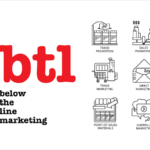You never forget a memorable experience. Whether it’s with a person, a group of people, or a product, the richer the experience the longer and more meaningful the impact.
Customer experience is important because it helps to increase sustainable growth and boost the revenue of a business. A positive and pleasant customer experience promotes loyalty, retain customers, and encourages brand advocacy. It is marketing that offers an experiential approach to customer awareness, or acquisition.
What is Experiential Marketing?
This is a marketing strategy that involves people’s experiences with a brand or its products. It necessitates face-to-face communication with a target audience and aims to create memorable, emotional connections with consumers. Experiential marketing is a novel approach that aims to turn passive observant into active participants.
Another name for experiential marketing is engagement marketing. A few examples of experiential marketing are:
- Business events, festivals, award ceremonies
- Brand activities and kiosks at trade shows
- Samplings or demos
- Unique experiences that match brand persona
- Retreats.




Why Experiential Marketing?
- Brand awareness: experiential marketing amplifies brand awareness with avenues such as brand activations.
- Brand affinity and loyalty: people purchase products based on their emotions. While doing this, building positive experiences inches them closer to conversion.
- Offer a way for prospects to try your product: not all channels let prospects touch, feel, or taste products. Experiential events do.
- Expand cross-channel efforts: experiential marketing leaves an impression. It almost always gives people something to talk about especially on social media over a memorable activity with a hashtag.
- Lead generation: it helps generate leads by gathering contact information and data on prospects.


